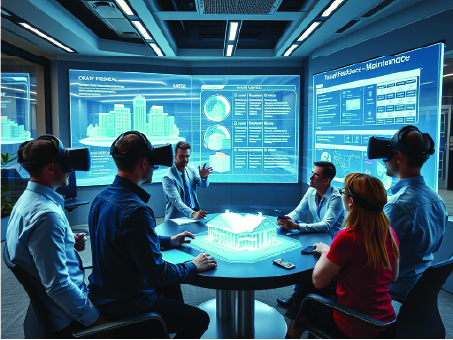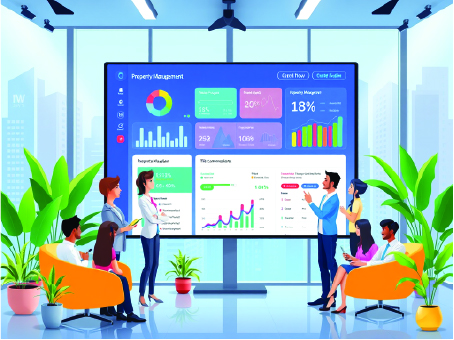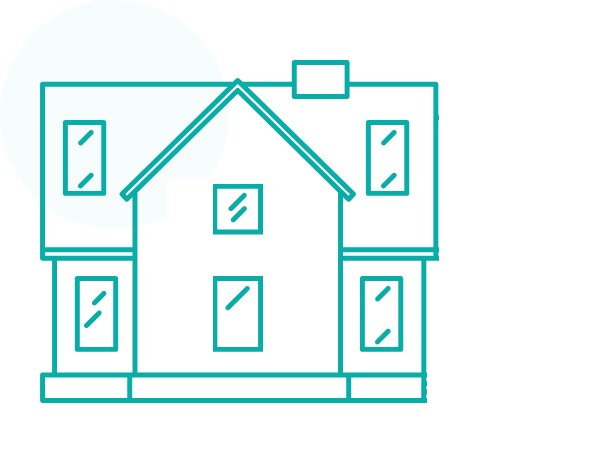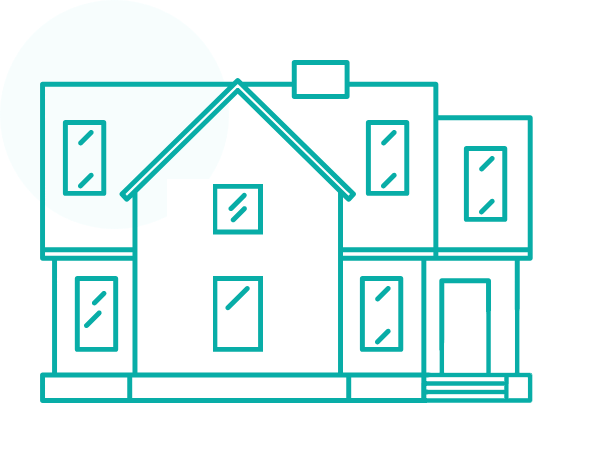Global Trends in Property Management Software Adoption
Property management software (PMS) is changing the real estate world at a rapid pace. As cities grow and more people move to urban areas, the need for effective property management solutions is becoming essential. Property managers are increasingly turning to software that streamlines their operations, improves tenant satisfaction, and helps them stay compliant with regulations.
The Shift to SaaS Models & Cloud-Based Solutions
One major trend is the shift toward Software as a Service (SaaS) models. This allows property managers to access powerful PMS tools remotely, moving away from traditional, manual methods. Data analytics is also becoming a key feature of PMS, providing property managers with valuable insights into tenant behavior and market trends. With these tools, they can predict maintenance needs before issues arise, helping to retain tenants and cut operational costs.
Market Growth & Future Projections
The global property management software market was valued at about $5.51 billion in 2023 and is expected to grow at a rate of 8.9% annually, reaching around $9.68 billion by 2030. This growth indicates that property owners and managers are recognizing the importance of innovative solutions to boost efficiency.
How IoT is Revolutionizing Property Management
The integration of Internet of Things (IoT) technologies is another driving force behind Property management software adoption. These technologies allow for real-time monitoring and management of various building operations, such as energy use and security. As tenants increasingly seek smart home features and sustainable living options, property management software is adapting to meet these demands. Companies are incorporating energy management and smart device integration to enhance tenant experiences and promote eco-friendly practices.
Why Commercial Real Estate is Investing in PMS
The commercial sector, too, is seeing the advantages of Property management software . As property management becomes more complex, businesses are investing in comprehensive software solutions that centralize tasks like lease management and tenant communication. This trend is crucial for maintaining transparency and efficiency in property operations.
Regional Insights – Where is PMS Growing the Fastest?
North America leads the way in Property management software adoption, holding the largest market share due to its advanced technology infrastructure. In contrast, Asia-Pacific is experiencing the fastest growth, driven by government initiatives and investments in smart city projects that require sophisticated property management solutions.
Overall, these trends indicate a significant shift toward automation and data-driven decision-making in property management, paving the way for a more efficient and responsive industry
Data-Driven Decision Making – The Key to Rental Success
Optimizing Rental Pricing with Market Insights
In today’s competitive rental market, data analysis is a game-changer for property managers looking to make smart decisions. One of the biggest advantages of analyzing rental data is the ability to set the right rental prices. By examining market trends and comparing similar properties through rental property analysis , managers can adjust their pricing strategies to stay competitive while maximizing revenue. This approach replaces outdated guesswork, allowing for quick responses to global property management trends.
Understanding Tenant Behavior for Better Retention
Data analytics also helps property managers understand tenant behavior and preferences. By looking at feedback, lease renewal rates, and maintenance requests, they can identify patterns that reflect tenant satisfaction or dissatisfaction. For example, if data shows high turnover linked to specific maintenance issues, managers can tackle these problems before they lead to tenant departures. This proactive approach not only enhances the living experience but also boosts tenant retention, saving money on vacancy costs, which is essential in the realm of rental property analysis.
Predictive Maintenance & Risk Management Strategies
Another key benefit of data analysis is predictive maintenance. By reviewing historical data, property managers can predict when maintenance issues are likely to arise. For instance, if data reveals that certain appliances fail after a specific time, managers can replace them before they break down. This not only reduces downtime but also minimizes the costs associated with emergency repairs, leading to happier tenants and aligning with current global property management trends.
Creating Targeted Marketing Campaigns Using Data
Data analysis is also vital for creating effective marketing strategies. By studying demographic information, property managers can tailor their marketing efforts to attract the right audience, increasing the chances of filling vacancies quickly. Knowing which marketing channels work best allows managers to allocate their resources wisely. For example, if social media ads perform better than traditional methods, they can focus their efforts there, reflecting the best practices in rental property analysis.
Why a Data-Driven Culture Matters in Property Management
Ultimately, integrating data analytics into property management is about more than just improving efficiency; it’s about fostering a data-driven culture. With real-time insights, property managers can navigate challenges and seize opportunities more effectively. As the rental landscape continues to evolve, those who embrace data analysis will be better prepared to meet tenant demands and thrive in a competitive environment. Staying current with global property management trends ensures that property managers can adapt and succeed.
By leveraging data effectively, property managers not only enhance their performance but also contribute to the long-term success of their properties. Embracing this analytical approach is essential for staying ahead in the ever-changing rental market, particularly through insightful rental property analysis.
Automating Lease & Maintenance Operations for Efficiency
How Automation is Transforming Lease Management
Property management software (PMS) has transformed how lease management works, significantly enhancing operational efficiency in property management. By automating everyday tasks, this property management software frees up property managers to concentrate on more important activities, like building relationships with tenants and planning for the future.
Simplifying Lease Renewals & Compliance
Managing leases is now easier than ever with automated tools that handle everything from creating to storing and renewing lease agreements. These property management software platforms help property managers keep track of tenant details and send out reminders for lease expirations, which reduces the chances of missed renewals and helps ensure compliance with local laws, thus improving operational efficiency in property management.
Faster Maintenance Handling with Digital Solutions
When it comes to maintenance, property management software shines by giving tenants a straightforward way to submit maintenance requests through online portals or mobile apps. This automation ensures that requests are prioritized and directed to the right team members quickly, minimizing downtime and enhancing operational efficiency in property management.
Using Analytics for Better Operational Efficiency
Moreover, advanced reporting and analytics features in property management software enable property managers to make informed decisions. By tracking maintenance costs and tenant satisfaction, they can continuously refine their processes. Identifying trends and areas for improvement ensures that operations remain efficient and responsive to tenant needs, further enhancing operational efficiency in property management.
Improved Tenant Experiences; How software enhances tenant satisfaction and retention globally.
Enhancing Tenant Experiences with Technology
Improving tenant experiences is increasingly reliant on innovative tenant satisfaction software that meets the changing needs of renters worldwide. In today’s competitive real estate market, property managers recognize that tenant satisfaction is essential for keeping tenants happy and ensuring profitability in global rental management.
How Digital Solutions Improve Tenant Communication
One effective strategy is to maintain open lines of communication through digital platforms. By using tenant satisfaction software and mobile apps, property managers can streamline communication, making it easier for tenants to receive timely updates about maintenance, events, and policy changes. This approach builds trust and enhances the overall tenant experience. For example, using tools for instant messaging or feedback can significantly improve how quickly property managers respond to tenant inquiries.
Smart Maintenance & IoT-Driven Property Management
Integrating maintenance management software is another key factor in boosting tenant satisfaction. This allows tenants to submit and track maintenance requests easily, ensuring that issues are resolved promptly. Advanced technologies, such as IoT devices, can monitor property conditions in real-time, enabling property managers to address problems before they escalate. This proactive approach helps maintain a positive living environment, crucial in global rental management.
Personalization – The Future of Tenant Experience
Personalized services also play a significant role in enhancing tenant satisfaction. By keeping track of tenant preferences and feedback, property managers can tailor services to meet individual needs. For instance, offering flexible lease terms can make them feel valued and appreciated, which fosters loyalty.
Building Community Engagement with Software
Creating a sense of community among tenants is essential. Software solutions that facilitate social interactions—like community forums or event calendars—help tenants connect with each other. Organizing social events through these platforms encourages engagement and builds stronger relationships, leading to higher retention rates, which is vital for global rental management.
How Tenant Experience Platforms are Changing the Game
Additionally, tenant experience platforms can greatly improve service delivery by offering a centralized space for tenant interactions. These platforms streamline processes like rent payments and maintenance requests while also providing information about amenities and community events. This comprehensive approach ensures that property managers can deliver exceptional service using tenant satisfaction software.
Future-Proofing Property Management with Technology
As tenants become more informed and empowered, their expectations for seamless, convenient, and personalized experiences will continue to rise. By adopting technology and implementing tenant satisfaction software property managers can enhance tenant satisfaction, ultimately leading to better retention and financial success in the world of global rental management.
Conclusion: Transforming the Rental Market with Property Management Software
Property management software (PMS) is fundamentally transforming the rental business landscape on a global scale. By streamlining operations, optimizing rental pricing, and enhancing tenant experiences, PMS empowers property managers to make data-driven decisions that drive success. The shift toward SaaS models and the integration of IoT technologies further enhance the capabilities of PMS, enabling real-time monitoring and improved efficiency. As the rental market continues to evolve, leveraging these innovative solutions is essential for meeting tenant demands and ensuring profitability.
For further insights, visit Top 10 features to look for in property management software
Discover how property management software can revolutionize your operations. At Haletale, we provide cutting-edge PMS solutions designed to enhance your property management experience, increase tenant satisfaction, and drive your rental business success.














